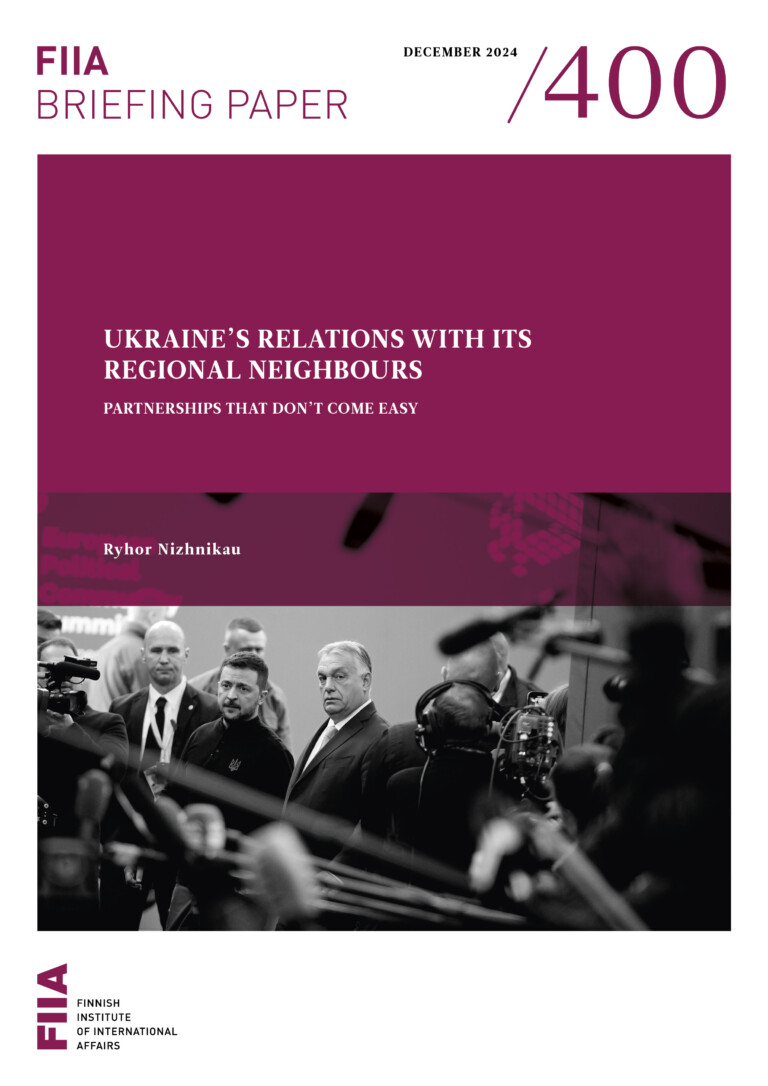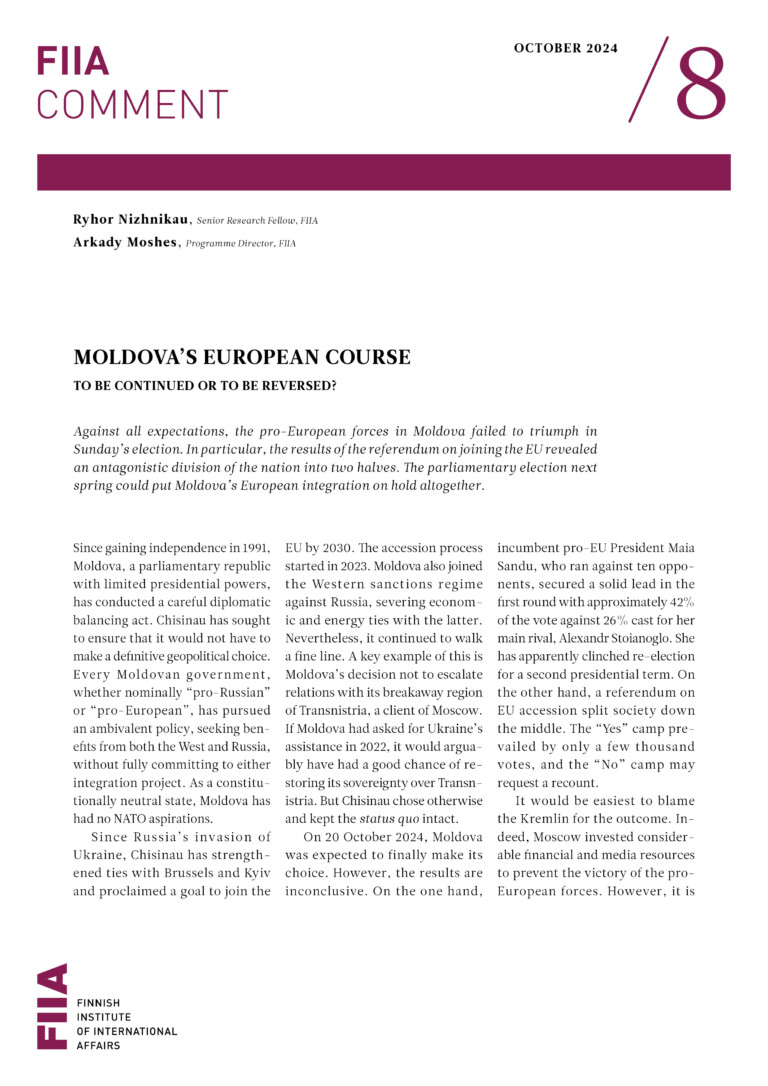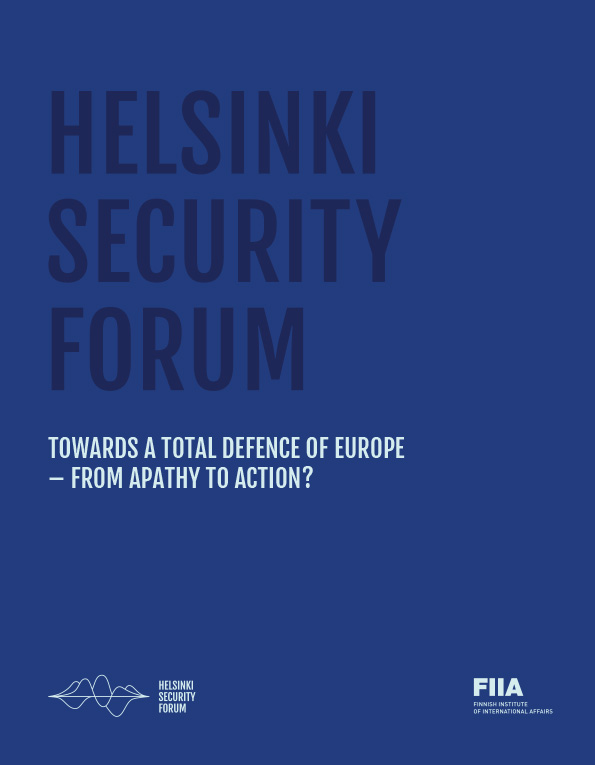If the EU offers a formal dialogue to the Eurasian Economic Union, it is unlikely to lead to reciprocal economic liberalization, or reverse the general political dynamics in EU-Russia relations. Rather, just like the ”Partnership for Russia’s Modernization” before it, this would become yet another stillborn undertaking.
On January 1, 2015, the Eurasian Economic Union (EEU), which includes Russia, Belarus, Kazakhstan and Armenia and is soon to be joined by Kyrgyzstan, will officially start functioning.
This is old news. In recent months, it appears that the crisis in and around Ukraine has made the issue rather peripheral, both because Ukraine’s non-accession to the EEU qualitatively scales down the whole project and because the worsening of Russian-Western relations in general drew everyone’s attention to other, more urgent issues.
However, an interesting plot twist can be expected soon. This will happen if the European Union decides to offer a formal dialogue to its Eurasian counterpart. The idea was publicly endorsed by German Foreign Minister Frank-Walter Steinmeier on the eve of his visit to Moscow in mid-November, but in the corridors of Brussels it had been an open secret for quite some time.
Such a dialogue would be a noticeable concession on the part of the EU, regardless of the level at which it would be held. It is well-known that the EU, and especially the people responsible for trade affairs in the European Commission, are very reluctant to even consider discussing privileged economic relations with entities that include non-members of the WTO. It is equally well-known that even if Kazakhstan completes its entry negotiations in the near future, Belarus is nowhere near membership. Hence the question: Why does Brussels now appear to be willing to give in to the long-standing demand by the Kremlin, when it previously refused to consider it favourably?
Steinmeier implied that such a dialogue and better mutual information about the goals of the EU-Ukrainian free trade agreement, on the one hand, and the EEU on the other, could serve as a tool to reduce EU-Russia tension, but this explanation is too vague.
No doubt, being dismissive about the EEU would be a mistake. Its creation has already changed the economic reality in the post-Soviet space. A number of internal trade barriers have been removed and a professional regulating body, the Eurasian Economic Commission, has been set up. Most importantly, the measures that Russia’s partners, especially Kazakhstan, have taken against the embedding of a strong geopolitical component in the activity of the Union should be pushing it towards the realization of the economic integration potential.
On the other hand, the jury is still out. In 2013 internal trade in the EEU did not increase, but fell by almost 5%, followed by another dip of 10.5% between January and September 2014. The liberalization is partial and very slow: labour will be able to move freely, but when it comes to goods, there are lots of exemptions, with energy being chief among them. Non-tariff barriers continue to play their disruptive role in internal trade, while the free movement of services is not even on the horizon.
Furthermore, since Russia’s partners did not support it in introducing sanctions against the West, Moscow believes they may be a channel for illegal imports. As a result, from November 30, Russian authorities declared a ban on the transit of sanctioned goods from Belarus through Russia, also within the EEU, which re-establishes border controls and clearly contradicts the spirit of any agreements. In the longer perspective, Russia’s role as the economic driver of integration is now in doubt, as is the ability of the Eurasian Economic Commission to act as a supranational authority within a top-heavy entity, where most decisions are taken not by institutions, but by national leaders.
Presumably, in these circumstances, the most logical step would be to wait and see how the EEU performs economically, in the mid-term perspective at least. Yet, apparently, this will not be the case, which brings us back to the “why” question.
It is hard to imagine – even if one disregards the mutual sanctions – that the goal of the dialogue can be reciprocal economic liberalization between the EU and the EEU, eventually leading to a free-trade zone “from Lisbon to Vladivostok”. The first years of Russia’s membership of the WTO have clearly demonstrated that it is not willing to open further. And since the Russian economy makes up almost nine-tenths of the aggregate, and the EEU is consensus-based, it makes little sense to invite new participants to the table. It might be more productive to discuss specific investment projects with Astana or Yerevan.
It is even less conceivable that the architects of the dialogue might be hoping to reverse the general political dynamics in EU-Russia relations. And if the purpose is to discuss Ukraine behind Ukraine’s back, under whatever pretext and guise, this would not only be dangerous for the EU’s external reputation, but would raise the risk of an internal rift to an unacceptable level.
So, most likely, we are simply dealing with a typical case of “engagement” for the sake of “engagement”, whereby a result is not really expected but where merely talking could be equated with achievement.
There was an example of this in the recent past, when almost every EU country concluded an agreement on the “Partnership for Russia’s modernization”. The deal was stillborn because Moscow never concealed the fact that it was only interested in technology transfer and not in societal transformation, which was the motive on the EU side. Scarce European diplomacy resources were wasted promoting and defending the a priori non-workable initiative. Yet, the “good news” was trumpeted and greeted.
It was after this that the crisis, which had been dismissed and denied at all official EU levels when it was approaching, erupted.
Of course, no one can prevent individual European politicians or certain EU member states from trying to repeat that exercise. Still, it is advisable to remember that people who desperately, and against analytical predictions, look for “the positive” often end up being terribly disillusioned.


















